Building a genuine connection with the audience is important for company success. It helps you build loyalty among customers.
However, it’s not an easy task to find creative and interesting approaches to creating content that truly communicates with their target audience. This is where the new technology known as generative AI comes into play.
Generative AI will make you rethink basic concepts of content production. It can completely transform the way that content is produced for companies of all sizes.
But how? It offers innovative ways for businesses looking to stay competitive, improve productivity, and support growth.
Let's understand more about it and explore its amazing capabilities. We explore how businesses of all sizes can use generative AI to encourage creativity, productivity, and growth in this blog.
What is Generative AI?
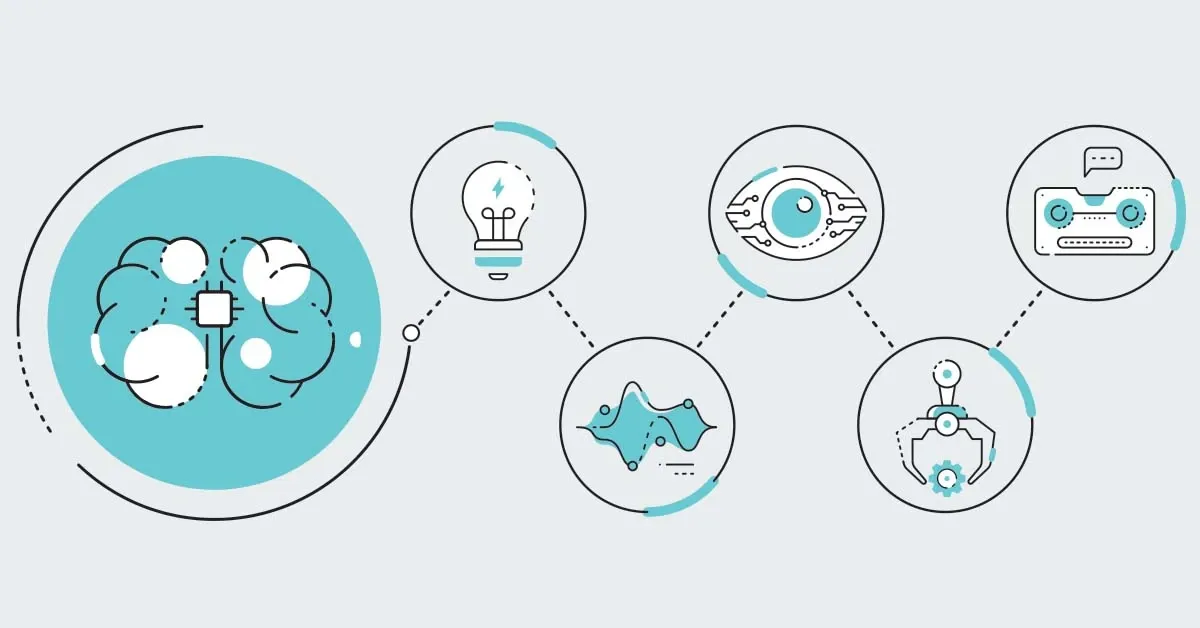
Generative AI is a type of artificial intelligence system that is capable of producing fresh content, such as text, images, or other data, by learning patterns from previous circumstances. Systems such as GPT-3, use artificial neural networks to generate creative and realistic outputs, showing the ability of autonomous content production.
The Benefits of Generative AI for Businesses
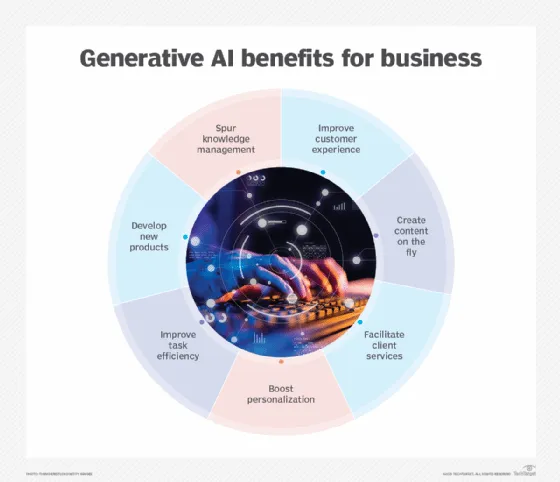
For organizations trying to improve their content generation efforts, generative AI has a variety of advantages. Here are a few noteworthy benefits:
Unleashing Creativity and Productivity
Generative AI frees up creative resources inside an organization by creating material that acts as a starting point for human creatives. It adds to a more efficient process, allowing content producers to focus on adding their distinctive touch and translating created ideas into high-quality masterpieces.
Maintaining Brand Voice and Style
Keeping the brand voice and style is important and it’s a challenge for companies to maintain it while adopting AI for content generation. Generative AI may be trained on a company's current content, ensuring that the created material is consistent with the brand's personality and tone. This implies that companies can maintain consistency in their messaging and provide the same brand experience across several channels.
Increasing Flexibility and Scalability
Businesses may use generative AI to grow their content generation operations without sacrificing quality. Businesses can develop a large amount of content fast and simply using AI-powered solutions, saving time and resources. This scalability is especially useful during busy periods or when firms are growing their digital footprint.
How to Use Generative AI for Businesses of All Sizes
Businesses benefit from generative AI because it automates content production, boosts creativity, manages tasks, improves customer service, and encourages innovation across industries.
Generating High-Quality Content
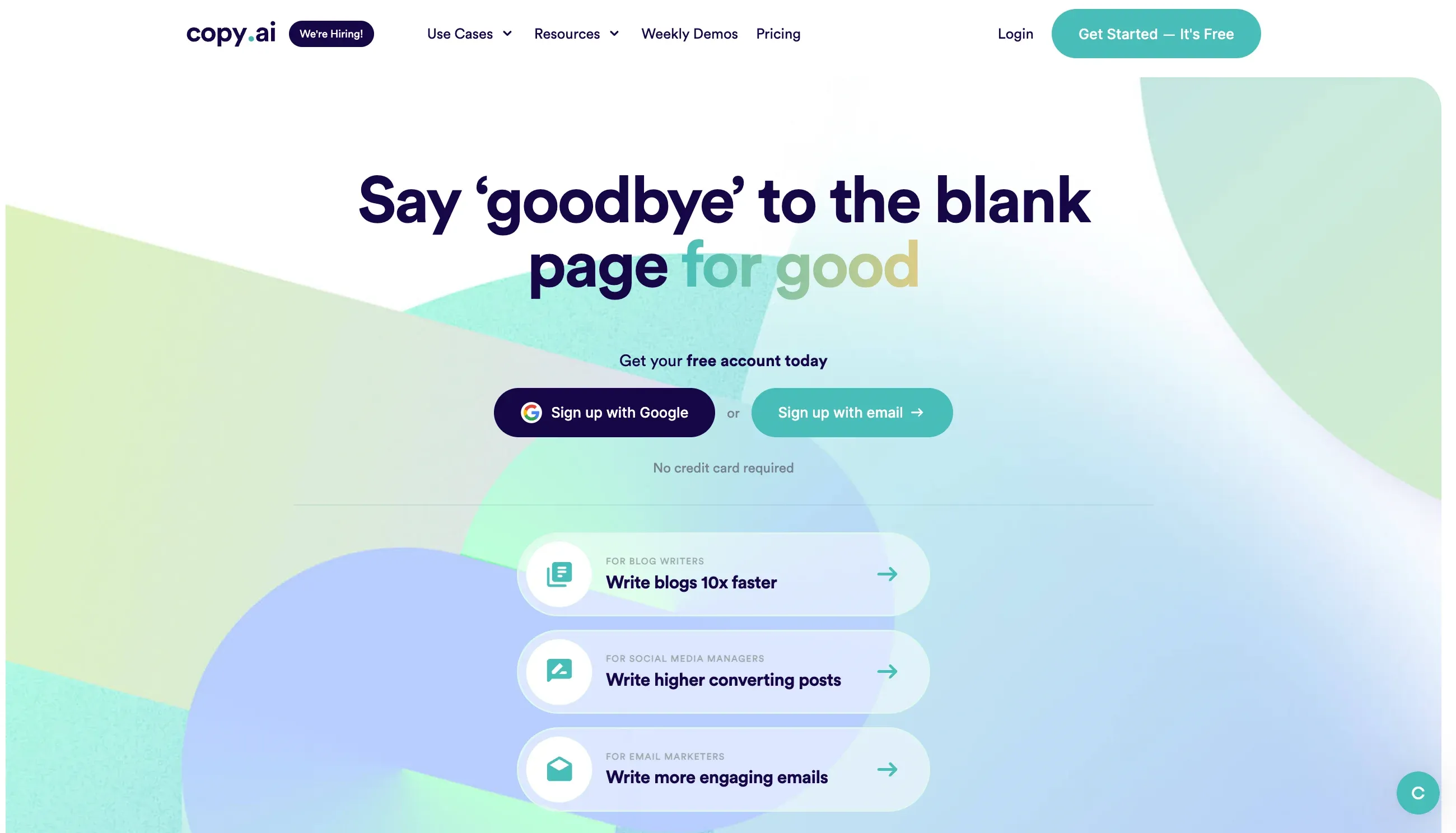
One of the most fascinating uses of Generative AI is its capacity to generate high-quality material for use across several digital channels. Let's look at how companies can use Generative AI to create engaging marketing material, articles, and social media postings.
- Empowering Marketing Efforts
Generative AI is capable of producing personalized suggestions for clients based on their tastes and behaviors, resulting in more focused and successful marketing efforts. Businesses may use Generative AI to develop interesting commercials, enticing email subject lines, and convincing sales content that will appeal to their target audience.
- Captivating Articles and Blog Posts
Creating new and engaging articles or blog entries is a constant issue for many organizations. Generative AI may help in this area by providing subject ideas, outlines, and even entire material based on specified keywords or topics. Content producers may then expand on these produced ideas by including their unique viewpoints and thoughts, resulting in rich and interesting pieces.
- Crafting Engaging Social Media Posts
Social media has grown into a necessary means for businesses to engage with their customers. Generative AI may help generate interesting and shareable social media posts, captions, and hashtags that are relevant to the target audience. Businesses may maintain an active social media presence and continually supply interesting material to their followers by employing Generative AI.
Personalized Customer Experiences
Providing personalized and unique experiences to clients has become a major focus in today's highly competitive corporate world. Businesses may now use Generative AI to give highly personalized product suggestions and customize user interfaces based on individual preferences and activity.
- Utilizing Generative AI for Personalized Product Recommendations
To develop personalized product suggestions, generative AI systems analyze massive volumes of client data, such as browsing history, buying trends, and preferences. This enables businesses to provide targeted and relevant suggestions that are customized to each customer's specific interests and demands.
- Customizing User Interfaces based on Individual Preferences and Behavior
Generative AI may play an important role in adapting user interfaces to individual users' tastes and behaviors. AI algorithms may dynamically change user interface components such as layout, color schemes, and content to produce a more personalized and engaging user experience. It does this by analyzing user interactions, eye-tracking data, and feedback.
Suggested Reading:
Streamlining Operations with Intelligent Automation
Generative AI improves business procedures and customer experiences by simplifying complicated processes and improving resource allocation. Let's find out how generative AI could affect operational efficiency.
- Automating Repetitive Tasks and Workflows Using Generative AI
By using generative AI to perform repetitive and time-consuming tasks, businesses may free up valuable human resources for more strategic projects. By training AI models to understand and replicate human behavior, businesses may use generative AI algorithms to handle exhausting tasks. This reduces errors and boosts output while also giving workers more time to concentrate on high-value jobs requiring creativity and critical thinking.
- Optimizing Resource Allocation and Process Efficiency
Generative AI may be used to improve resource allocation as well as processing efficiency by analyzing large datasets and historical trends. AI systems that handle large amounts of data have the potential to identify bottlenecks, streamline workflows, and suggest process modifications.
Enhancing Product Design and Development
Generative artificial intelligence (AI) can drastically change the processes involved in product development. Using AI algorithms, businesses could improve product prototypes, generate fresh concepts, and bring imaginative ideas to life. Let's discuss how generative AI may enhance product design and development.
- Using Generative AI in Product Design, Prototyping, and Optimization
Generative AI might be useful by providing an infinite number of design options based on established parameters and limits. organizations can discover novel and innovative ideas that they might have overlooked in the past. Generative AI can improve product prototypes' usability, functionality, and beauty.
- Exploring how Generative AI can assist in Generating New Ideas and Concepts
Ideation and concept creation can benefit greatly from the use of generative AI. Businesses may encourage AI algorithms to produce new concepts that push the bounds of creativity by training the models on large databases of existing designs, patterns, and trends. These produced ideas have the potential to inspire and function as a basis for human designers, resulting in the development of genuinely innovative products.
Improving Decision-Making with Predictive Analytics
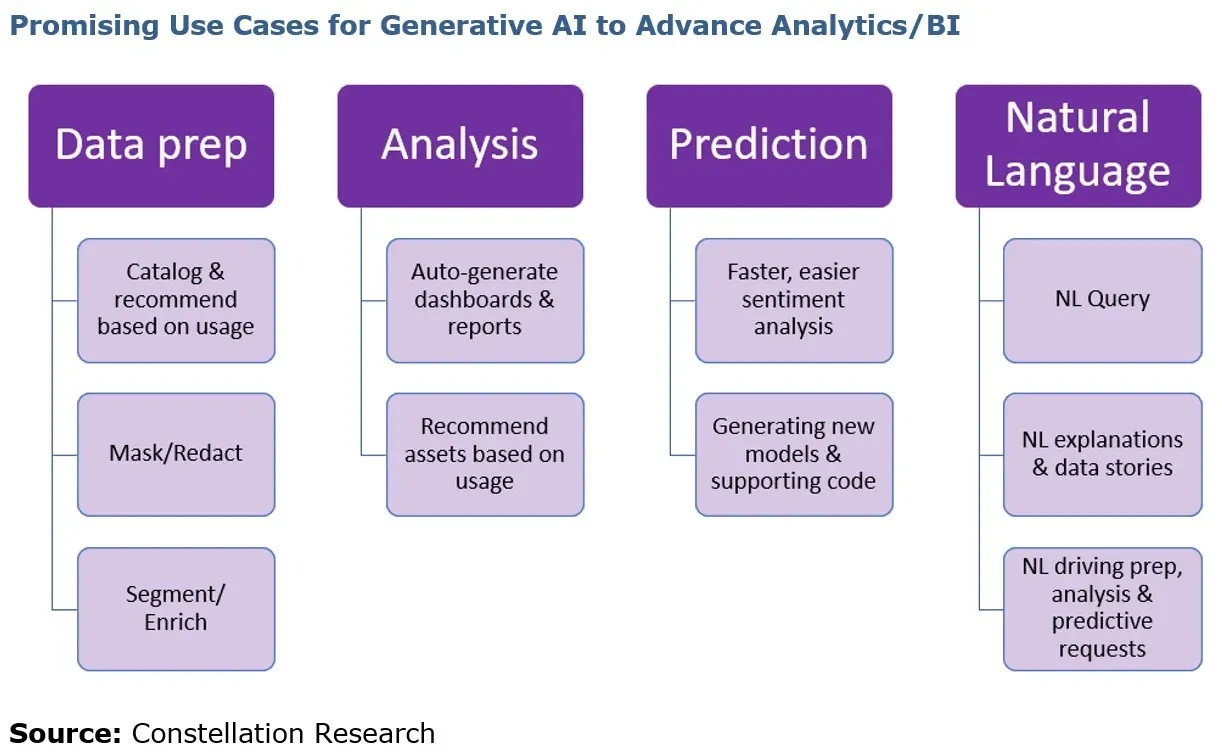
Generative AI is here to support you in making intelligent choices for the success of your organization. It can help you stay ahead of the competition by using the outstanding capabilities of data analysis and predictive insights.
- Leveraging Generative AI for Data Analysis and Predictive Insights
Generative AI algorithms can analyze massive amounts of data in real-time, identify patterns, and generate accurate forecasts. By crunching numbers and analyzing historical data, Generative AI can provide valuable insights into consumer behavior, market trends, and future demands. This allows businesses to make data-driven decisions that are more likely to lead to success and avoid costly mistakes.
- Making Informed Decisions based on Accurate Forecasting and Trend Analysis
You don't have to rely just on assumption and intuition now. Businesses may use the possibility of accurate predicting and trend analysis using Generative AI. By using data from the past, generative AI helps companies in predicting future patterns.
Suggested Reading:
Enhancing Customer Support and Chatbots

Each of us has come across a fair share of difficult customer service situations. However, companies may transform how they respond to client inquiries and offer first-rate service by using chatbots and generative AI.
- Implementing Generative AI-powered Chatbots for Customer Support
Chatbots with generative AI capabilities, like BotPenguin, are transforming customer service. These clever bots can comprehend normal language, understand client inquiries, and deliver appropriate responses. Businesses can reduce response times and provide 24/7 service by implementing customer care processes with the help of Generative AI.
- Improving Response Times and Customer Satisfaction
Nobody enjoys having to wait hours to hear back from customer service. Chatbots driven by Generative AI enable businesses to provide their clients with quick and accurate assistance. Chatbots like Botpenguin can manage several queries at once, guaranteeing immediate responses and raising client satisfaction levels all around.
And beginning with Generative AI-powered solutions for your business isn't that tough. Meet BotPenguin, the home of chatbot solutions.
From custom development to integrating the new-age wonder ChatGPT, BotPenguin excels in developing chatbots that suit your custom needs.
- Whitelabel ChatGPT
- Hire ChatGPT Developers
- Custom ChatGPT Plugins
- Hire Chatbot Developers
- Custom Chatbot Development
- ChatGPT Clone
- ChatGPT Consultant
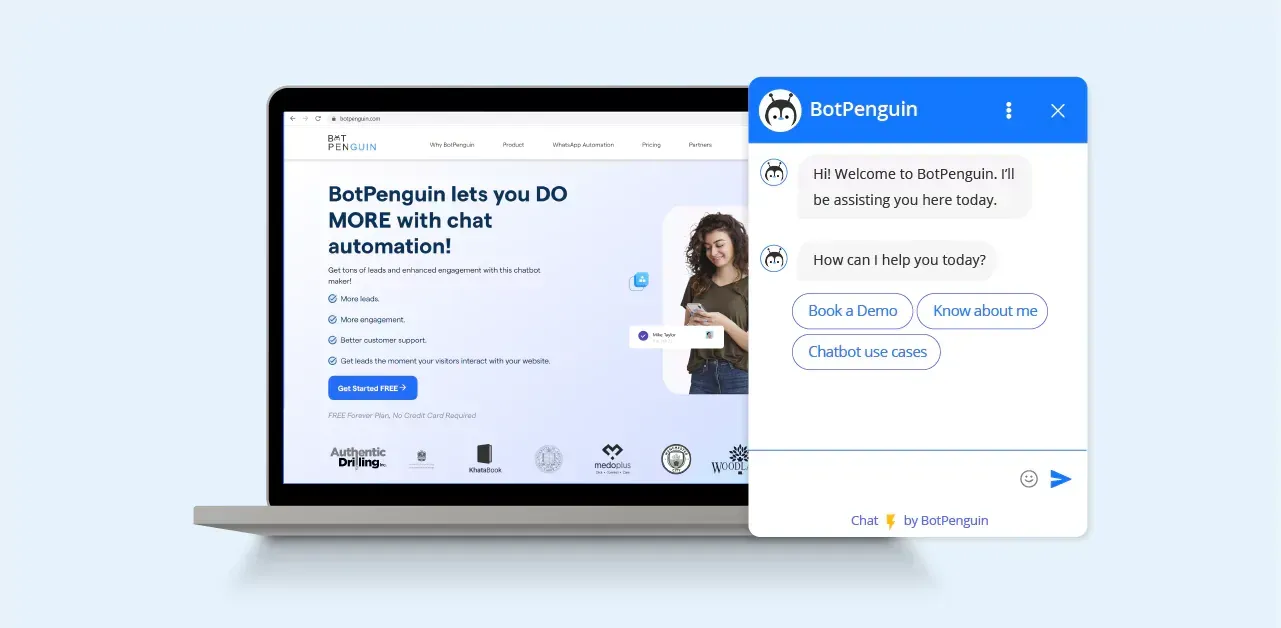
Optimizing Supply Chain and Demand Forecasting
One of the most difficult and important parts of managing a successful company is supply chain management. Businesses can remain flexible and effective by using generative AI to predict demand accurately and manage the supply chain.
- Using Generative AI to Optimize Supply Chain Management
A huge amount of supply chain data, including supplier performance, inventory levels, logistics of transportation, and more, can be examined by generative AI systems. Through data analysis, companies may pinpoint challenges, simplify procedures, and enhance the network of the supply chain. This results in a quicker time to market, lower costs, and more efficiency.
- Forecasting Demand and Adjusting Inventory Levels Accordingly
Businesses can manage production schedules, minimize stock-outs or surplus inventory, and modify inventory levels by knowing demand trends. Guaranteeing that items are available when required, not only reduces expenses but also raises customer satisfaction.
Personalized Marketing Campaigns
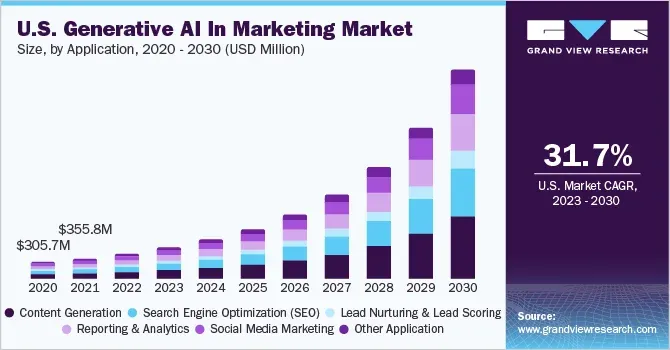
Personalization is now essential in today's hyper-connected surroundings to draw in customers and encourage meaningful interaction. Businesses can now develop highly personalized marketing strategies that make every consumer feel seen and understood because of generative AI.
- Utilizing Generative AI for Tailored Marketing Campaigns
Large volumes of consumer data may be evaluated by generative AI algorithms, which gives businesses a profound understanding of the requirements, preferences, and behaviors of their customers. Businesses may create personalized marketing initiatives that are appealing to particular customer groups by understanding these details.
- Delivering Targeted Content and Offers
Companies may provide personalized content and offers to specific customers rather than just sending them general boring messages. Businesses can increase the possibility of conversion by customizing their marketing messages to each customer's individual preferences based on their understanding of their interests, past purchases, and browsing behavior.
Ensuring Data Security and Privacy
As organizations gather and handle larger volumes of data, protecting data security and privacy has become important. Sensitive data protection, anomaly detection, and cyber threat prevention may all be greatly aided by generative AI.
- Deploying Generative AI for Data Security and Privacy Protection
Businesses may find it simpler to identify any security failures and cyber threats because of the real-time data analysis and monitoring capabilities of generative AI algorithms. Businesses may prevent illegal access to their data, secure critical information, and keep an eye out for any irregularities in their systems by using the possible benefits of generative AI.
- Identifying Anomalies and Preventing Cyber Threats
Generative AI can quickly identify any changes or errors from typical patterns of data behavior. Because of this, companies can identify possible cyber threats before they have a chance to impose serious harm, including malware or unauthorized access attempts.
Conclusion
Generative AI offers an overall change for firms of all sizes, ranging from automating routine tasks to improving creative thinking. Generative artificial intelligence (AI) has a wide range of applications, from customized marketing campaigns to expedited customer support.
Generative AI helps businesses safeguard private information, identify mistakes, and avoid online threats all at once. Its potential for transformation can be seen in its real-world applications in many different kinds of sectors.
It not only increases productivity and efficiency but also sparks innovation and expansion. Businesses can discover new opportunities for expansion, creativity, and success by implementing generative AI. They can design customized marketing strategies, guarantee data security, and protect client privacy.
With the help of generative artificial intelligence, it's time to embrace the future.
Suggested Reading:
Frequently Asked Questions (FAQs)
What is generative AI and how can businesses of all sizes use it?
Generative AI is a technology that uses machine learning to generate new data based on existing patterns. Businesses of all sizes can use it for tasks like content generation, design, and product customization.
How can small businesses leverage generative AI to improve their marketing efforts?
Small businesses can use generative AI to create personalized marketing content and recommendations, optimize advertising campaigns, and generate creative assets like images and videos to engage their target audience.
How can generative AI benefit medium-sized businesses in the product development process?
Medium-sized businesses can utilize generative AI to generate new product ideas, optimize designs based on customer preferences, and create prototypes through simulation and iterative testing, saving time and resources in the development process.
Can generative AI help large enterprises automate repetitive tasks and streamline operations?
Yes, generative AI can automate various repetitive tasks like data entry, customer support, and content creation in large enterprises. By streamlining operations, it frees up resources and allows employees to focus on more strategic initiatives.
How does generative AI help businesses of all sizes improve customer experience?
Generative AI can analyze customer data to personalize product recommendations, generate tailored content, and enhance customer support with chatbots. This leads to a more personalized and interactive customer experience.
What are some examples of successful implementations of generative AI in businesses of all sizes?
Businesses of all sizes have used generative AI in different ways. Examples include startups using it for creative content generation, e-commerce businesses using it for personalized recommendations, and large enterprises automating customer service processes.


